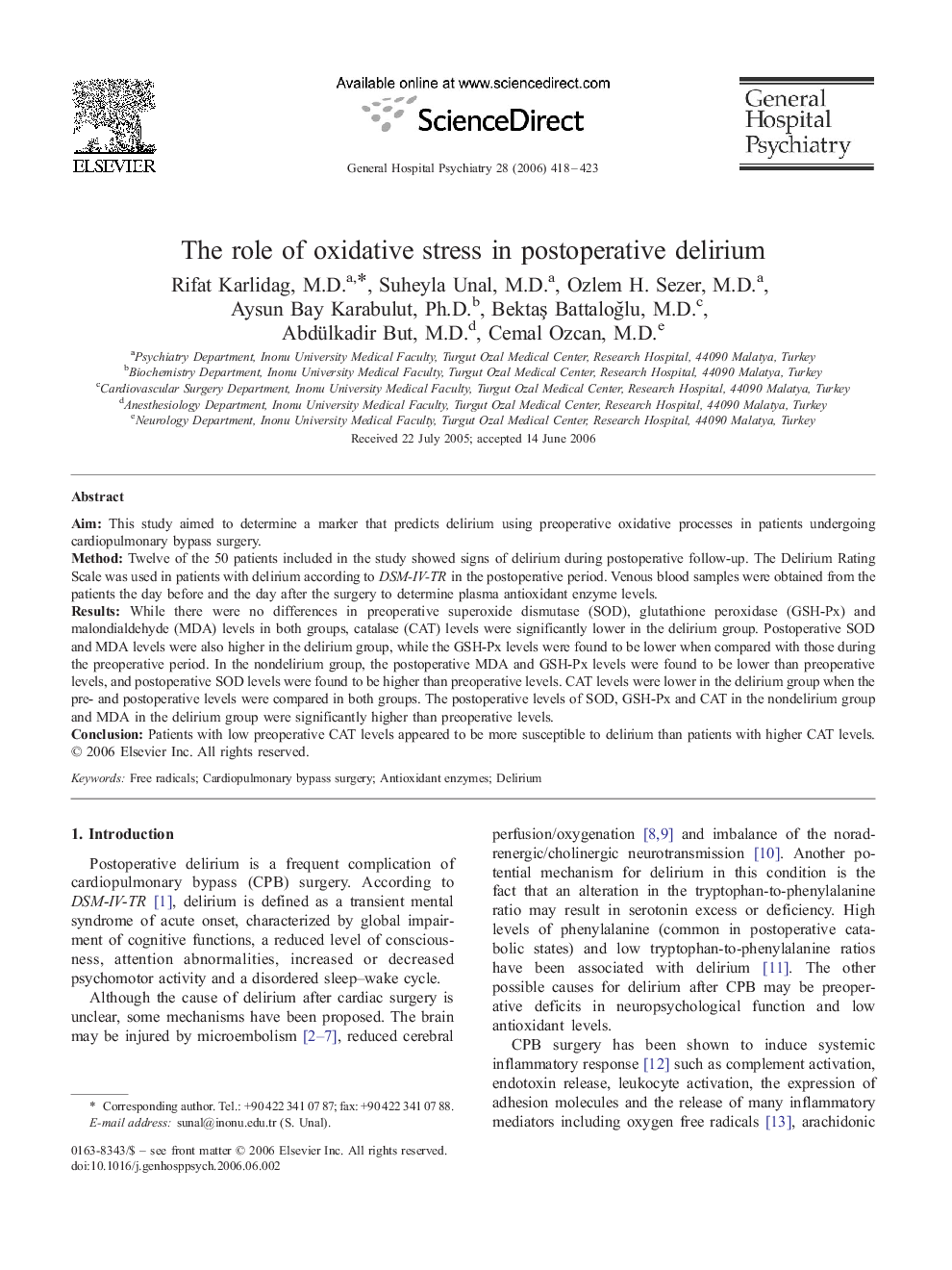| Article ID | Journal | Published Year | Pages | File Type |
|---|---|---|---|---|
| 3238464 | General Hospital Psychiatry | 2006 | 6 Pages |
AimThis study aimed to determine a marker that predicts delirium using preoperative oxidative processes in patients undergoing cardiopulmonary bypass surgery.MethodTwelve of the 50 patients included in the study showed signs of delirium during postoperative follow-up. The Delirium Rating Scale was used in patients with delirium according to DSM-IV-TR in the postoperative period. Venous blood samples were obtained from the patients the day before and the day after the surgery to determine plasma antioxidant enzyme levels.ResultsWhile there were no differences in preoperative superoxide dismutase (SOD), glutathione peroxidase (GSH-Px) and malondialdehyde (MDA) levels in both groups, catalase (CAT) levels were significantly lower in the delirium group. Postoperative SOD and MDA levels were also higher in the delirium group, while the GSH-Px levels were found to be lower when compared with those during the preoperative period. In the nondelirium group, the postoperative MDA and GSH-Px levels were found to be lower than preoperative levels, and postoperative SOD levels were found to be higher than preoperative levels. CAT levels were lower in the delirium group when the pre- and postoperative levels were compared in both groups. The postoperative levels of SOD, GSH-Px and CAT in the nondelirium group and MDA in the delirium group were significantly higher than preoperative levels.ConclusionPatients with low preoperative CAT levels appeared to be more susceptible to delirium than patients with higher CAT levels.
